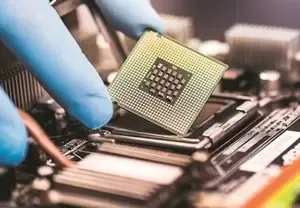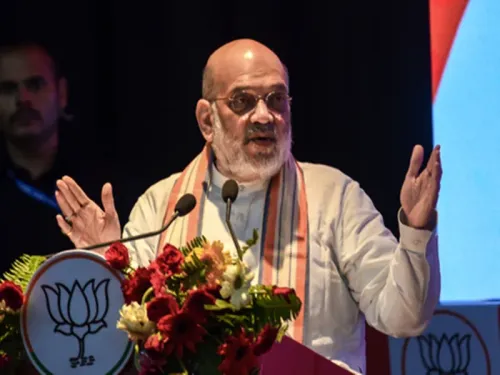Transformative Deep-Tech Advancements to Propel India Towards $10 Trillion Economy

Synopsis
Key Takeaways
- India's shift from software to deep-tech is significant.
- Government initiatives support innovation and commercialization.
- Venture capital is increasingly backing deep-tech startups.
- India employs 20% of global semiconductor design engineers.
- Deep-tech sector is becoming investment-ready and globally relevant.
Bengaluru, March 6 (NationPress) As the country progresses towards its ambitious goal of becoming a $10 trillion economy, India is experiencing a fundamental transition from a software-driven tech landscape to one propelled by deep-tech innovations, according to a report released on Thursday.
Government-supported initiatives like the Rs 10,000 crore 'Fund of Funds', India’s Semiconductor Mission (ISM), and the National Deep Tech Startup Policy (NDTSP) reflect a growing dedication to nurturing Frontier Tech innovation and commercialization, as highlighted by the report from 3one4 Capital.
Investment from venture capital in deep tech is witnessing a surge, with early-stage funds investing in scalable, IP-driven startups. India’s competitive edge lies in its cost advantages and engineering talent, setting it apart in the global market.
India holds a significant position in the global semiconductor design arena, employing around 20 percent of the world’s semiconductor design engineers, which equates to approximately 125,000 professionals.
National research initiatives, university incubators, and corporate R&D investments are enhancing talent retention and growth. With strategic skill development, India is poised for deep tech advancement, supported by a robust pipeline of researchers, engineers, and entrepreneurs, the report emphasized.
“India’s deep-tech sector has evolved beyond a niche; it is transitioning into an investment-ready, policy-supported, and globally significant opportunity. While the groundwork is solid, transforming deep-tech innovation into commercially viable, globally competitive enterprises will necessitate continued capital, ecosystem collaboration, and patient execution,” stated Pranav Pai, Founding Partner and Chief Investment Officer of 3one4 Capital.
With both industrial and governmental stakeholders actively promoting the adoption of deep tech, India is at a crucial juncture—one where disciplined innovation and long-term dedication will shape its leadership in AI, semiconductors, and clean mobility over the next decade, Pai noted.
With projections indicating that 70 percent of new commercial vehicles in India will be electric by 2030, the primary challenges to scaling include charging infrastructure and battery efficiency.
“With $10 billion in government incentives and strategic public-private partnerships, the nation is bolstering its fabless design and semiconductor manufacturing ecosystem,” the report concluded.









